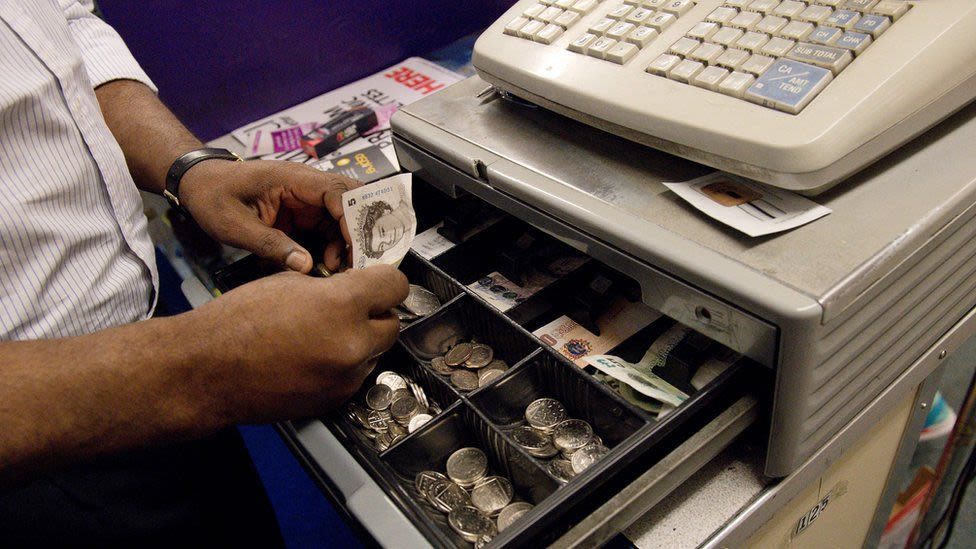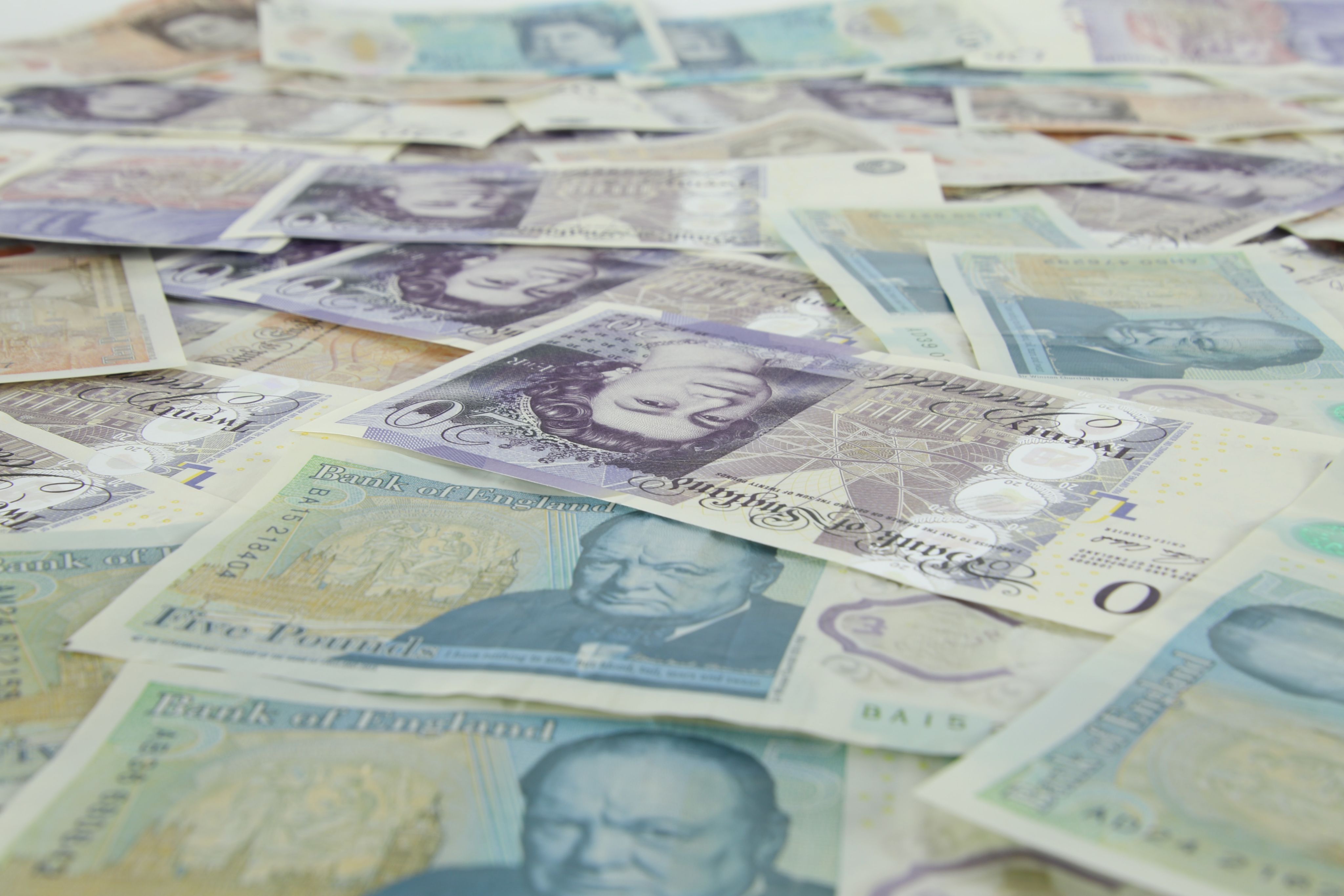Why are MPs debating the acceptance of cash?

Two petitions calling on the Government to mandate cash acceptance received over 58,000 signatures:
Require all businesses and public services to accept cash payments
Make it unlawful for shops to refuse cash payments
"As many businesses and taxpayer-funded public services are increasingly insisting upon cashless payments, it is important that we safeguard against the potential dangers of this practice."
The Petitions Committee scheduled a debate on these petitions in the House of Commons on Monday 20 March 2023 at 4.30pm.
To inform the debate, the Petitions Committee launched a survey and the member of the Committee who opened the debate, Martyn Day MP, spoke with one of the petition creators to find out more about why they started their petition.
Petitions Committee Survey
Before the debate, the Petitions Committee launched a survey to ask petitioners and others for their experience of businesses accepting cash payments, and whether they know anyone else who prefers to use cash.
The results were shared with MPs ahead of the debate.
There were 18,691 responses to the Committee’s survey.
The vast majority of respondents said they prefer to use cash rather than other forms of payment:
98% of respondents said they agree with the ask of the petitions for all shops and services to be required to accept cash.
95% of respondents said they prefer to use cash to pay for things instead of other means of payment.
92% of respondents aged 75+ said they prefer to use cash, compared with 52% of respondents aged under 16.
Respondents spoke about the inconvenience of having cash refused, and their feelings of embarrassment or anxiety as a result:
88% of respondents said having their cash refused has a ‘large’ or ‘moderate’ impact on them.
“It is not always made clear when you go into a shop whether or not they will accept cash. This can cause anxiety as it is not known until point of sale whether you will have your payment method rejected or not.” Survey respondent
“I have not been able to buy some pasties from a pasty shop […] as they don't take cash. It's embarrassing as I have to say I don't want them then. Also, a public house […] so I could not get anything to eat or drink. It has a terrible effect on your whole life, it makes you very sad and depressed.” Survey respondent
Some respondents told us they had physical or mental health problems that made it difficult to use alternative forms of payment. These included bipolar disorder, anxiety disorder, depression, arthritis, visual impairment, cognitive disability, and stroke:
8% of respondents said they had physical or mental health issues that make it difficult to use alternative forms of payment.
“I am bipolar. In a manic phase I once racked up thousands of pounds of debt and this caused my family hardship. My psychiatrist proscribed that during a manic phase I only be allowed cash to prevent a recurrence. It has been a lifesaver for my husband.” Survey respondent
“Arthritis in [my] fingers make it difficult to press small buttons and take out my card some days. If I forget my glasses I can't see the numbers, frequently forget the [pin] number due to cognitive dysfunction which can be worse due to anxiety." Survey respondent
You can read the full summary of responses on our website.

A member of the Committee, Martyn Day MP, opened the debate. He gave the following statement:
"[The] creator of the more recent petition, told me: “We must protect the individual’s right to use cash in all physical transactions. While there are many obvious advantages to digital payments, it is not suitable at all times or for all people…There are dangerous political implications with going cashless, as instances of banks and financial service providers closing accounts for political reasons are not unprecedented and are clearly at odds with liberal society’s cornerstone of freedom of belief.”
"As we have heard from a number of interventions, freedom of choice is a central tenet of this issue. To be clear, the choice to use cash is still one that many people wish to make.
"Indeed, 95% of respondents to the Petitions Committee survey ahead of this debate stated that they preferred to use cash to pay for things over other means of payment.
"Some 8% of respondents to the Petitions Committee survey said that they had a physical or mental health issue that made using alternatives to cash difficult. The issues included bipolar disorder, anxiety disorder, depression, arthritis, visual impairment, cognitive disability and strokes.
"It is reasonable to conclude, therefore, that the impact of cash refusal is felt acutely by those on lower incomes, those who experience barriers to digital payments, those who are disabled, and those with physical or mental health conditions."

Economic Secretary to the Treasury, Andrew Griffith MP responded to the debate. He said:
"I […] commend the many members of the public who signed the e-petitions to rightly raise this important issue here, in the home of democracy, where it falls to us to resolve these matters.
"Cash has many virtues, and I assure Members that the Government recognise the role played by cash when other technologies fail and the real concerns regarding privacy and the potential, in a cashless society, for states to control freedom of speech.
"However, we should also recognise that despite its many virtues, cash is expensive to handle, can be subject to theft and can make businesses—particularly small businesses in the rural areas we have heard a lot from today—feel vulnerable and potentially targeted by criminals.
"I have followed this debate extremely closely so, to be clear, let me say for the Government that there is no plan, no drive and no conspiracy to eliminate cash.
"This Government continue to support the ability of citizens to use cash as an alternative to digital payments, and I am proud that the Government are taking legislative steps to support the use of cash well into the foreseeable future.
"I am clear that it is not the Government’s position […] that we will mandate cash acceptance on retailers or public services."

Watch the debate
MPs debated this petition on 20 March 2023. You can watch the full debate below or read the debate transcript on Hansard.
Read the debate pack from the House of Commons Library: E-petitions relating to the acceptance of cash.
Petition debates
Petition debates can be an important part of a campaign. Debates help raise awareness of an issue and can influence decision-making in Government and Parliament.
Petition debates are 'general' debates which allow MPs from all parties to discuss the important issues raised by one or more petitions, and put their concerns to Government Ministers.
Petition debates don’t end with a vote to implement the request of a petition. This means MPs did not vote on whether shops and services should be required to accept cash.
What is the Petitions Committee?
The Petitions Committee is a cross-party committee of MPs that considers e-petitions submitted on Parliament's petitions website and public (paper) petitions presented to the House of Commons, engaging the public directly with the work of the House.
What is a Westminster Hall Debate?
Westminster Hall debates take place in the Grand Committee Room in the House of Commons.
They give MPs an opportunity to raise local or national issues and receive a response from a government minister.
Debates in Westminster Hall take place on ‘general debate' motions expressed in neutral terms. These motions are worded ‘That this House has considered [a specific matter]'.
How Parliament works: Westminster Hall debates.

